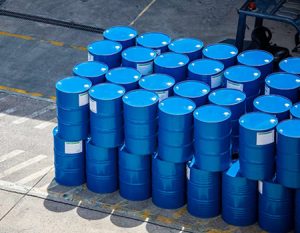
We are involved in the production of a wide range of chemical products through various industrial processes. These companies play a crucial role in supplying chemicals that are essential to numerous industries, including pharmaceuticals, agriculture, automotive, construction, electronics, and more. Here are some key aspects of what chemical manufacturing companies do:
1. Research and Development (R&D): We invest heavily in research and development to discover and develop new chemicals, processes, and formulations. This involves studying the properties of different substances, exploring potential applications, and improving existing manufacturing methods.
2. Raw Material Sourcing: We source raw materials from various suppliers. These raw materials can include natural resources, minerals, gases, and other chemicals. The quality and availability of these raw materials significantly impact the manufacturing process and the final product.
3. Process Engineering: We involves complex processes, often requiring precise control of temperature, pressure, and other factors. Process engineers design and optimize production processes to ensure efficiency, safety, and the desired product quality.
4. Production: The core activity of manufacturing companies is the large-scale production of chemicals. This can involve synthesis reactions, distillation, extraction, and other processes. The production facilities are equipped with specialized equipment and technologies to handle chemical reactions and transformations.
5. Quality Control: Rigorous quality control measures are implemented throughout the manufacturing process to ensure that the final products meet industry standards and regulatory requirements. Quality control involves testing raw materials, intermediate products, and the final output for consistency and purity.
6. Environmental and Safety Compliance: Chemical manufacturing companies adhere to strict environmental and safety regulations. They implement measures to minimize environmental impact, handle waste responsibly, and ensure the safety of their workers and the surrounding community.
7. Packaging and Distribution: Once the chemicals are manufactured and quality-tested, they are packaged for distribution. Packaging is designed to protect the product and comply with transportation regulations. Chemical manufacturers also manage the logistics of distribution to deliver products to customers worldwide.
8. Customer Support and Technical Services: We provide technical support to customers, offering expertise on product applications, troubleshooting, and optimization. They may also conduct training sessions and provide documentation to assist customers in using their products effectively and safely.
9. Innovation and Adaptation: The chemical industry is dynamic, and companies must continually innovate to stay competitive. This involves adapting to market trends, incorporating new technologies, and responding to changes in regulations and customer demands.
Overall, chemical manufacturing companies are integral to the global economy, supplying essential materials for a wide array of industries and contributing to technological advancements and product innovations.












